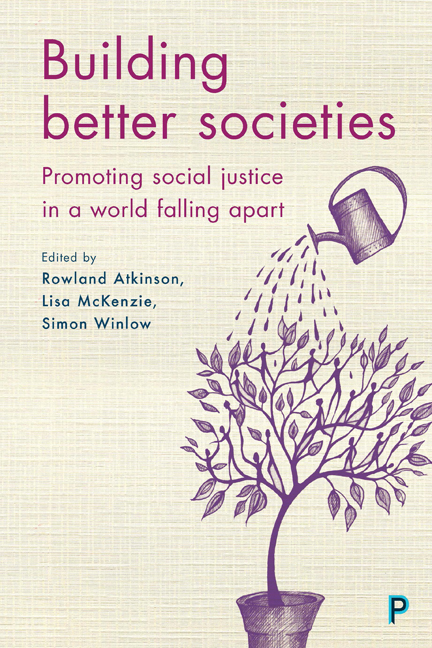Nine - Putting ‘the social’ back into social policy
Published online by Cambridge University Press: 05 April 2022
Summary
As a result of the dominant neoliberal approach to economic and social policy in the UK over the last three-and-a-half decades British society is becoming increasingly fragmented, with, for the first time since the 1930s, a generation of people set to experience worse living standards than their parents. This includes a decline in social mobility within and across generations, a vast chasm emerging between the haves and have-nots, a long-term squeeze on wages and living standards, health crises relating to underfunding and running down of the NHS, and the move towards a rote learning-based secondary education system geared towards a low-wage, low-skill economy and a debt-fuelled higher education system that taxes aspiration and promotes the exclusion of less affluent students. This is supported by a political economy focused on the socialisation of financial sector risk, lax tax regimes for multinational corporations, and an economic model dependent on a housing bubble in London and debt-fuelled economic growth on the one hand, and, on the other, the individualisation of social, economic and environmental risks in terms of residual social protection, high levels of personal debt and unwillingness to prepare for, and adjust to, crises caused by increasing extreme weather events associated with climate change.
The individualisation of risk has been evidenced in the transformation of social policies and the welfare state, from ‘social security’ to ‘welfare’ (usually used in the derogatory sense to refer to a lack of self-reliance or ‘cultures of dependency’). A two-track approach to social policy-making in practice has emerged focusing on ‘good welfare’ and ‘bad welfare’. While ‘good welfare’ involves corporate subsidies and tax breaks for big business or ‘wealth creators’ (corporate welfare) and, to an extent, pensions and benefits for older people, ‘bad welfare’ involves the management of the deficient and deviant behaviour of individuals into whom personal responsibility and self-reliance must be instilled, for example, in punitive workfare programmes in which unemployed people must work for benefits and by the removal of social housing provision and disability support schemes. The visible world of the welfare state in the, overwhelmingly negative, mainstream political discourse over the last 35 years has usually focused on problems with the latter while ignoring the negative consequences of the former.
- Type
- Chapter
- Information
- Building Better SocietiesPromoting Social Justice in a World Falling Apart, pp. 111 - 124Publisher: Bristol University PressPrint publication year: 2017



